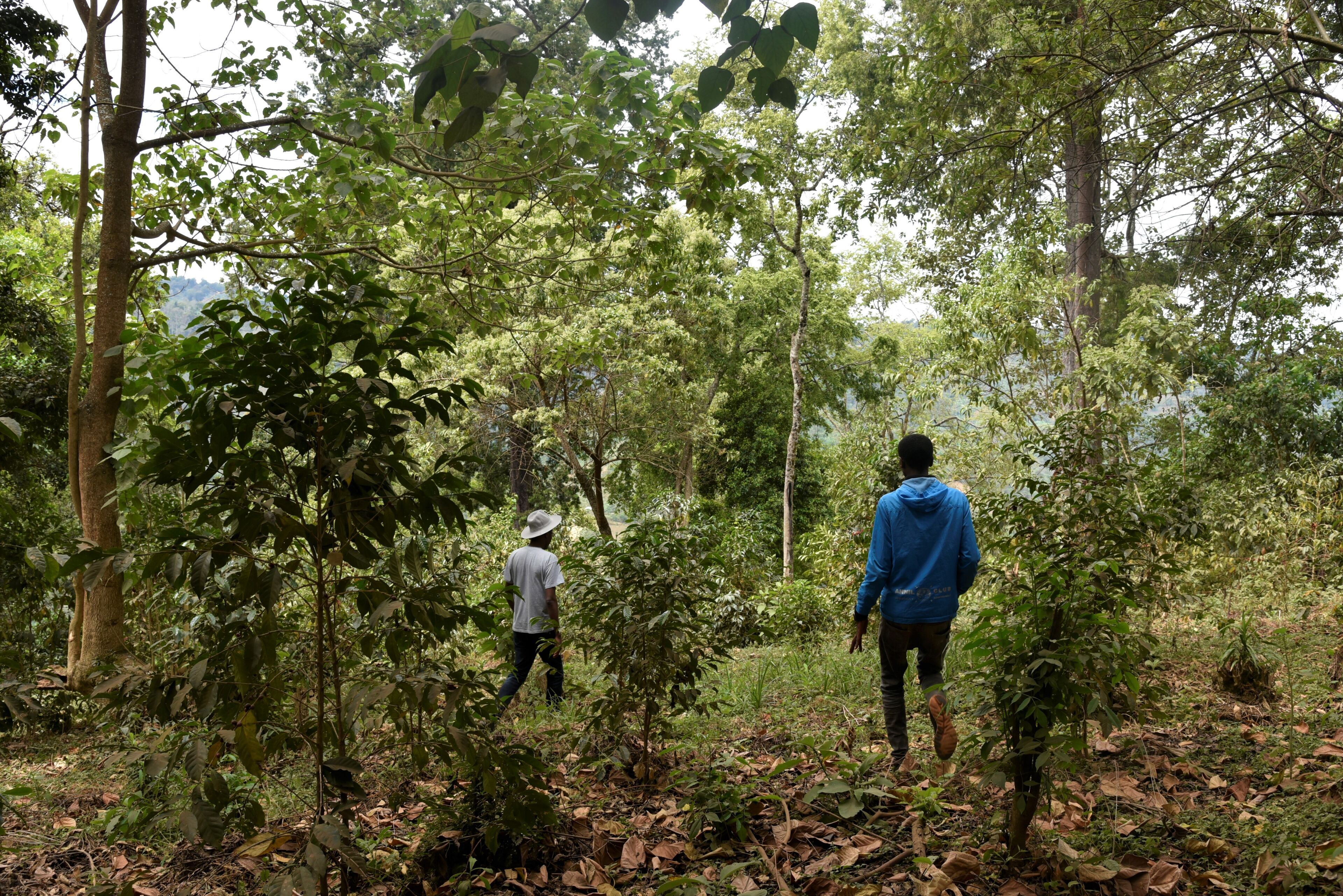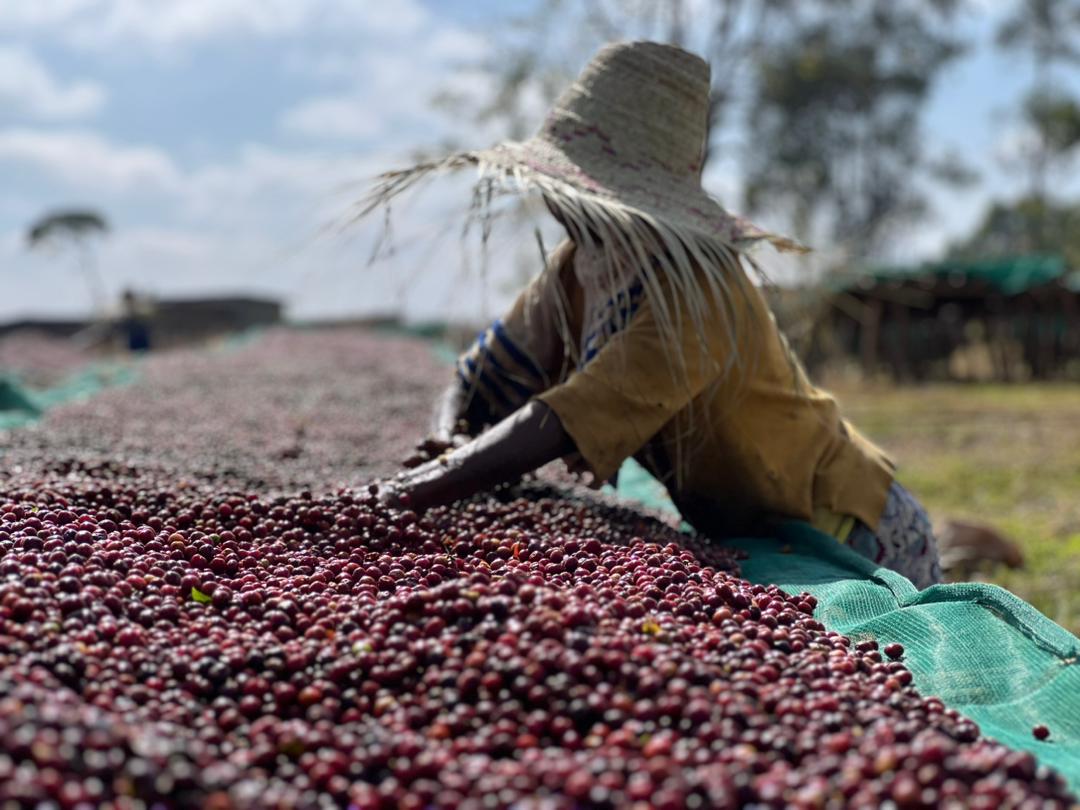This coffee was produced in the Uraga woreda, and more specifically in the Gogogu kebele, where the best Guji beans are found and where Oboleyan has a drying station.
It is collected by the 4 Edema brothers, with whom Belco has an excellent relationship. They are in charge of Oboleyan, which means "brother" in the Oromia language.
Oboleyan collects this natural coffee from producers in the region at an altitude of over 2000m. They grow their coffee in the traditional way, usually in combination with ensät, on small plots of land which they take great care of.
In Gogogu Kebele, the farmers are well trained, as companies other than Oboleyan have produced coffee before them. In all, around 400 farmers deliver their cherries to the station, which is located close to the road.
The station employs around 70 workers, and has 80 drying beds. Since 2020, production has been divided by 2, with 4 containers in 2020 compared with 2 in 2023/24.
Once the coffee arrives at the station, it is sorted for 2 days and then dried for 12 to 15 days. Every noon, the coffee is mixed to ensure even drying, then the drying beds are covered to avoid direct sunlight.



